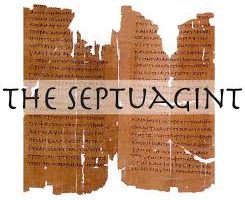Origin of the Word Gehenna
Introduction
The word Gehenna, which is continually translated as “hell” in virtually all major English translations, has a curious history as to where the word itself derived. This blog post will dive deep into the Gehenna Etymology (study of the origin of a word) and seek out why it is translated as hell in the New Testament. I wrote a little about this word HERE, but this post will be much more exegetical and educational in a linguistic sense. This post is a bit technical but also crucial to understanding this complex concept. It is not a straightforward word to decipher concerning its proper origins and meaning, so I will attempt to offer an adequate understanding of its origin.
Gehenna Etymology
Most all Christians believe the word Gehenna (γέεννα, ης, ἡ, Strongs 1067) is simply the word for hell. However, the source of the Greek word géenna is a transliteration (not translation) of the Aramaic word “ܕܼܿܝܢܵܐ,” (pronounced GEH-henna). A transliteration is a process of transferring a word from one language to the alphabet of another language while retaining the phonetic sound. For example, γέεννα is pronounced the same as the English Gehenna. There is no difference in sound—only in writing. A transliteration, therefore, means that it is written differently but pronounced identically. This is an essential concept because Aramaic is the language Jesus and the disciples spoke along with everyone else in Palestine, including the Pharisees. None of the local individuals in were native Greek speakers so a thorough investigation into Aramaic is essential for any biblical word study from the New Testament. Likewise, there were no identical Greek words to γέεννα originally, so the Aramaic word was brought into the Greek language as a “loan word” because Jesus did not express those words in Greek.
Aramaic Origins
The Aramaic word, however, is a direct translation of the Hebrew term, Gêhinnōm (גֵּיא בֶן־הִנֹּם) “the valley of the Sons of Hinnom.” Aramaic was spoken by the Jews after the Babylonian Captivity and continued until the time of Jesus. The Hebrew Bible reflects this eventual change in language because there are 268 verses of Aramaic in the OT, located in Ezra, Daniel, and Jeremiah, along with a significant number of proper names scattered throughout the rest of the Bible. Therefore, the Aramaic and Hebrew “Gehenna” is the identical word but in different languages.

Subsequently, the Greek transliterates from the Aramaic, giving us the Greek γέεννα that we have today. That indicates that when Jesus spoke the Aramaic version of Gehenna, He literally said, “The Valley of Hinnom,” and the people literally heard “The Valley of Hinnom.” The debate, however, lies in what Jesus intended when he said the word Gehenna. Did he mean the literal Valley of Hinnom? Or an underworld below where non-Christians are tormented eternally? Was the valley a place of literal or eschatological destruction? Several connotations could be applied to this word with a considerable amount of discussion among many Christians, theologians, and scholars.
The Septuagint (LXX)
Around the second to third century BC, the Hebrew Bible (OT) was translated into Greek since that was the lingua franca of the day. The Valley of Hinnom is referred to several times in the OT (mostly in Joshua and Jeremiah) and was subsequently translated into Greek for the LXX. The Hebrew word for the valley itself is “gei ben Hinnom” (The Valley of the Sons of Hinnom) is translated several different ways in the LXX with numerous manuscript variations. Therefore, it is challenging to get an accurate and exhaustive picture of how the word was viewed among the Greek-speaking population at the time. However, one of those instances is spelled “Geienna” (Joshua 18:16), which speaks of the valley as a border along with the Valley of Rephaim.
Variations in the Greek Text
Other notable translations of the Hinnom Valley in the LXX (English of the Septuagint followed by Greek) are: Josh. 15:8 (valley of Hinnom, pharagx Honom or Ennom), Josh. 18:16 (Hinnom, Geienna), Neh. 11:30 (Valley of Hinnom, Ennom), Jer. 7:31-32 (Ravine of the Son of Ennom, The valley of the son of Ennom and pharagx uiou Ennom), Jer. 19:6 (Graveyard of the Sons of Hinnom, poluandrion uiou Ennom) 2 Chon. 28:3 (Geibenthom [this is how it is spelled in the English version], Gambe Emmon), and 2 Chron. 33:6 (Ben-Hinnom, Gebane Ennom). There is also a reference in Jer. 2:23 which says in the English “the valley.” Still, the LXX translates it as “the place where men gather” and has a footnote which reads “Some scholars identify this term as denoting a place of prostitution” (footnote taken from the Lexham English Septuagint).
In the book Rethinking Hell, Dr. Kim Papaioannou states about the Greek Geienna, “Geienna bears closet relation to the form of “Gehenna” of the New Testament and it is used in a text without any religious or eschatological interpretation. The large number of variations in translating the Hebrew would suggest that there had not developed a fixed tradition that would conjure up images of divine punishment” (p. 248). Therefore, during the time of translating the LXX (ca. second century BC), Gehenna does not yet indicate a place of future punishment but a real-world place of death.
Jesus’s Use of the LXX
In the first century, the Jews spoke Aramaic, but most writing was in Greek. The Jews *may* have heard the Old Testament read in Hebrew during the synagogue, but it is more probable they heard and/or read (for the literate) in Greek. For example, Mark 7:6-7 records Jesus quoting the LXX directly from Isaiah 29:13 when he says, “Well did Isaiah prophesy of you hypocrites, as it is written, ‘This people honors me with their lips, but their heart is from me; in vain do they worship me, teaching as doctrines the precepts of men.’” It is of course possible that Jesus read this in Hebrew, but the Gospel writers recorded it in Greek using the LXX. However, this is far from conclusive.

Jesus most expectedly spoke at least some Hebrew and potentially some Greek, with the former being much more of a possibility since it was the lingua franca of the time. What we do know for sure, though, is that the Gospel writers used the LXX to register most of the statements from Jesus in Greek, even though He presumably spoke this part in Aramaic or Hebrew, so we ought to at least deposit some authority on the LXX and the variations of the Greek word Gehenna (Geienna) since that is what the Biblical authors employed.
Conclusion
This debate on the origin of the word Gehenna appears to most Christians conclusive that it originally meant “hell.” However, after doing some serious investigation, that may not be irrefutable. The beginnings of the word referred to a literal valley just outside Jerusalem’s walls. However, what is unclear is how and when the word Gehenna became associated with hell. Many think the Bible is “clear” that the context of Jesus’s words demand “hell.” However, in the next blog post I will look to address this issue further to in fact see if the context does mean an eschatological place of judgment, or something else?
What is your opinion on this matter? Did you realize the origin of the word Gehenna originally meant the Hinnom Valley? Do you think it does mean “hell?” Let me know, I am curious to what others think about this issue.
Previous blog post on The Words of Hell Gehenna/Tartarus is HERE.
Next blog post on…
Further Reading:
Papaioannou, Kim. The Geography of Hell in the Teachings of Jesus. Eugene, OR: Pickwick Publications, 2013.
The Lexham English Septuagint. Bellingham, WA: Lexham Press, 2019.
Chris Date, et al. Rethinking Hell: Readings in Evangelical Conditonalism. Eugene, OR: Cascade Books, 2014.
Jason Evert. “In Which Passage Does Jesus Quote the New Testament.” https://www.catholic.com/qa/in-which-passages-does-jesus-quote-the-septuagint-and-where-does-the-new-testament-allude-to-the


